
What Legacy Vendors Won’t Tell You About Accreditation Readiness
30% of Institutions Are Not Accreditation Ready — Is Yours Falling Behind?
Nearly 1 in 3 higher education institutions struggle to meet accreditation standards — not because of academic shortcomings, but because they lack true accreditation readiness.

How to Use Technology to Meet Accreditation Standards Effortlessly in Higher Education
Tune In To Our Audio Blog
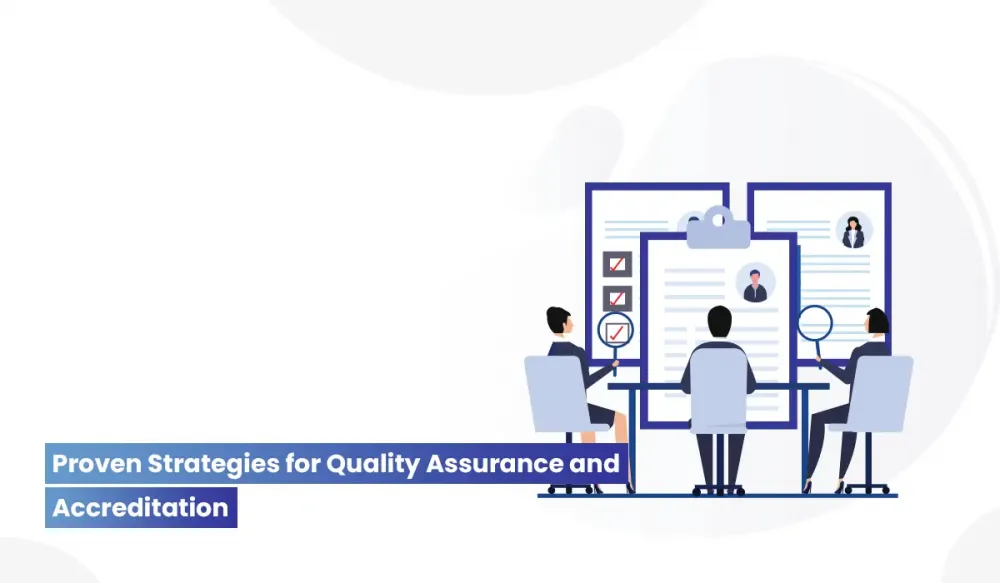
Assuring the Best: Top 7 Strategies for Quality Assurance and Accreditation in Education
Tune In To Our Audio Blog
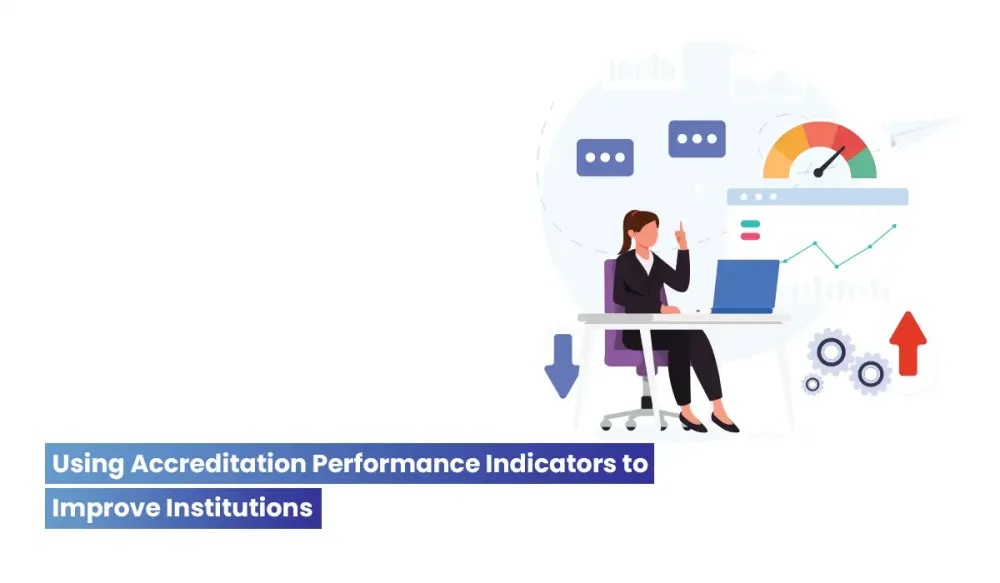
From Data to Action: Using Accreditation Performance Indicators to Drive Institutional Improvement
As everyone knows, accreditation plays a critical role in our institutions. Have we really used accreditation performance indicators to up our game, though? These measures are instruments that can point us in the direction of significant, long-lasting improvements rather than merely statistics. Let's explore how we might utilize these indicators to push for continual development and the greatest results for our teachers and students—that is, to surpass expectations rather than merely meet them. Are you ready to discover how data can be used to take action? Let's go ahead and begin.
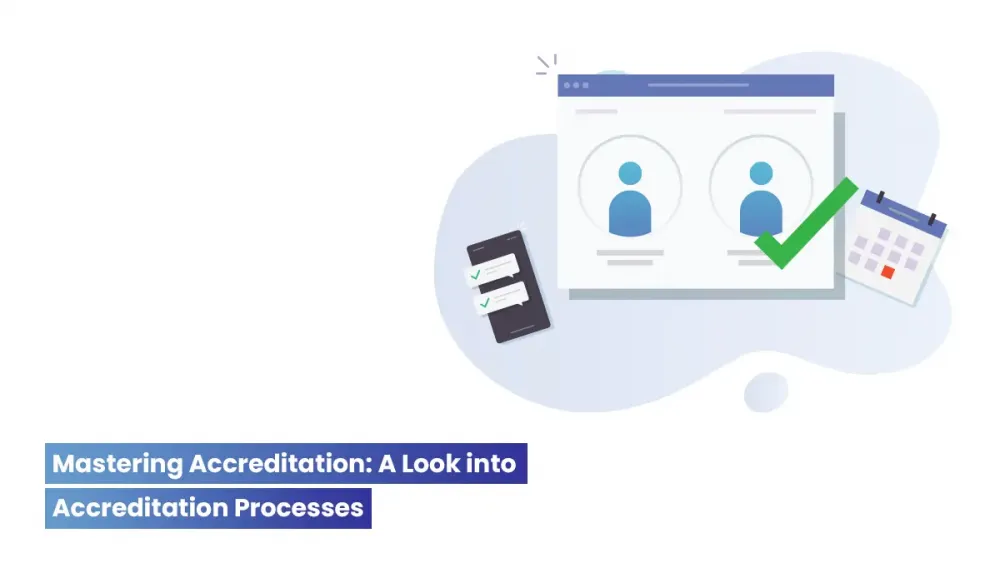
Benchmarking Institutional Quality: The Journey Through Accreditation Processes and Standards
Tune In To Our Audio Blog
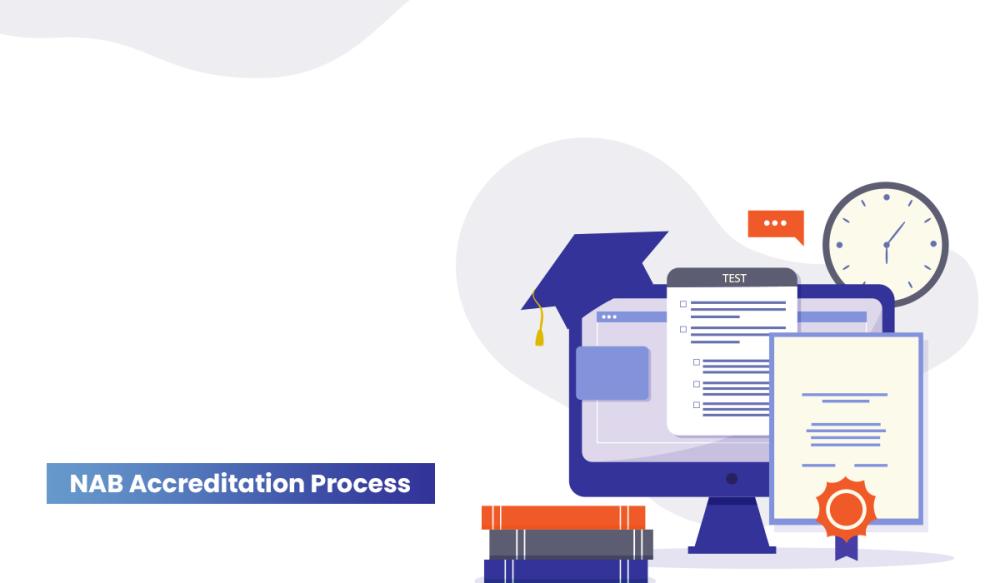
What is NBA Accreditation? NBA Process Explained
Indian education system is evolving and the National Board of Accreditation(NBA) is leading the transformation. It is by far the most important criteria to judge the efficacy of diploma, undergraduate and post-graduate programs taught in India. The government recognizes this and even AICTE has made getting NBA accredited for engineering and management programs by 2022 a mandate now checks out the complete NBA Accreditation Process below.
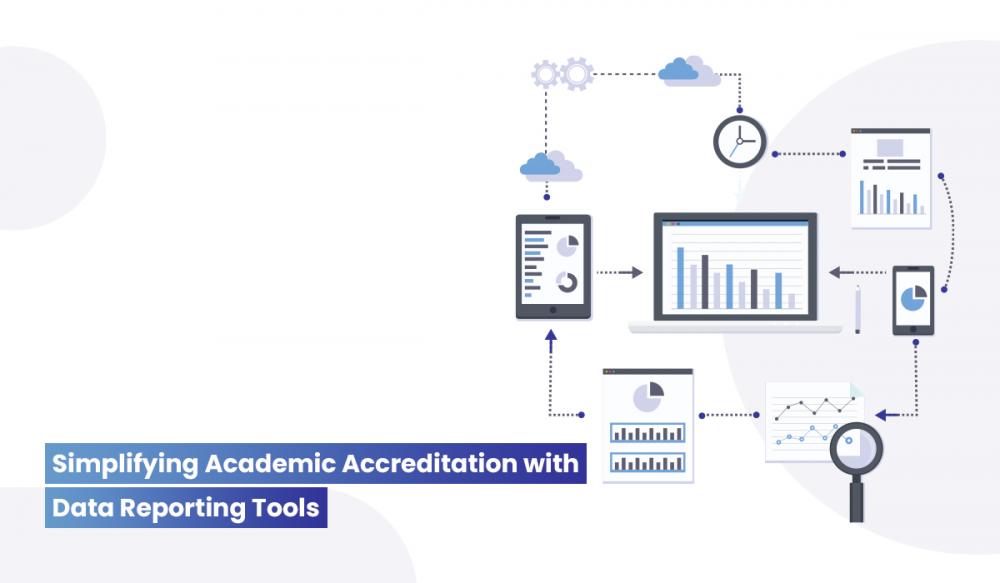
Visualizing Success: How Data Reporting Tools Simplify Academic Accreditation
As top colleges and universities continue to dominate the higher education industry with high-quality programs, a greater number of institutions are realizing the potential of getting their course accredited and adopting the continuous quality improvement process from admission to graduation. Not only can this help educational institutions with a unique opportunity to provide quality programs and courses to students, but it also represents a tremendous opportunity for educators to drive enrollment and improve program ranking globally.
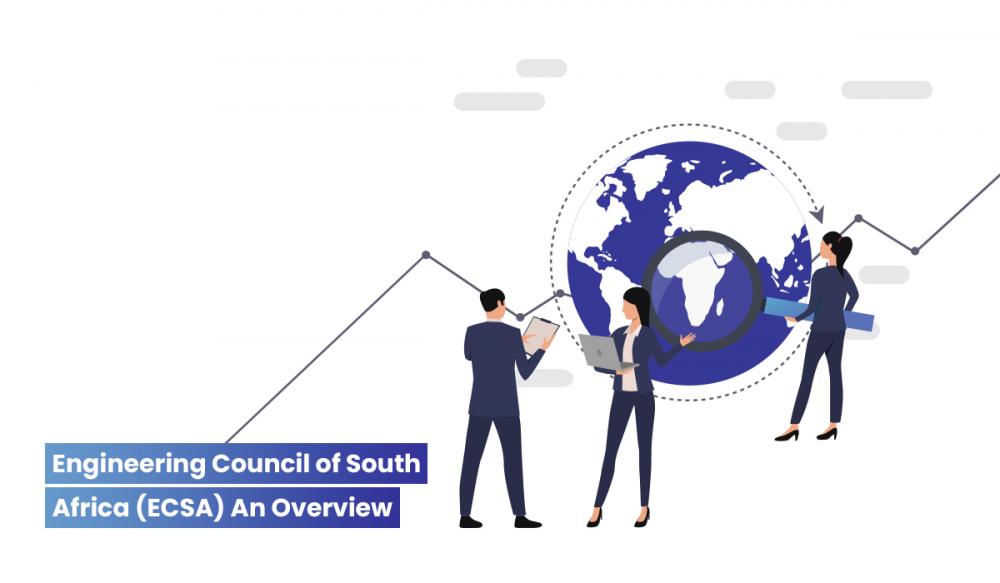
Ensuring the competence of engineers in South Africa: The contributions of Engineering Council South Africa (ECSA)
The beauty and complexity of engineering lie in its ability to solve real-world problems, shape society, and drive innovation. However, without competent and skilled engineers, this potential cannot be fully realized. In South Africa, the Engineering Council South Africa (ECSA) plays a crucial role in ensuring the competence of engineers and regulating the engineering profession.

Advancing Engineering excellence in Ireland: The role of Engineers Ireland (EI)
Engineering is a vital industry in Ireland, contributing significantly to the country's economic growth and development. Engineers Ireland, the professional body for engineering in Ireland, plays a crucial role in advancing engineering excellence across the country. With a membership of over 25,000 engineers, the organization provides a platform for engineers to connect, learn, and grow professionally.

Innovations in Engineering Education and Practice: The Engineering New Zealand Perspective
The field of engineering is constantly evolving, and staying up-to-date with the latest innovations is critical for success. This is particularly true for engineering education and practice, where innovative approaches can enhance learning outcomes, improve professional skills, and solve complex societal challenges.

The Benefits of IES Accreditation for Engineers and Engineering Programs in Singapore
Engineering is a vital industry in Singapore, with a growing demand for professionals and institutions that are able to deliver high-quality engineering solutions. The IES accreditation is a professional organization that promotes engineering excellence and represents the interests of engineers in Singapore.
One of the key ways that IES achieves its mission is through its accreditation program, which recognizes the achievements of both engineers and engineering programs in Singapore.
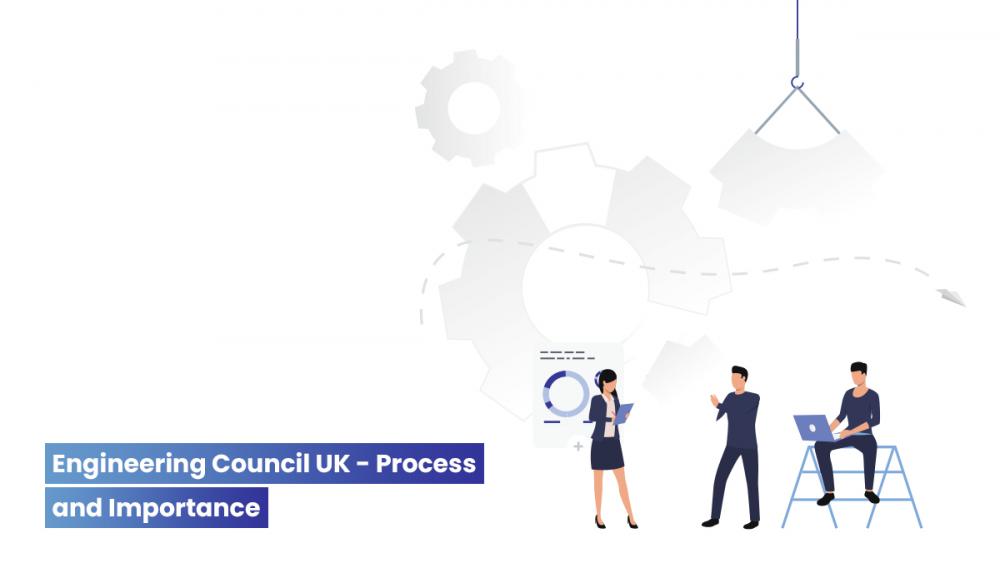
The Process of Engineering Council UK (ECUK) Accreditation for Engineering Programs
Engineering is a discipline that shapes the modern world, and the quality of engineering education has a significant impact on the future of society. In the United Kingdom, the Engineering Council plays a vital role in regulating the engineering profession and ensuring that engineering programs meet the highest standards of excellence.
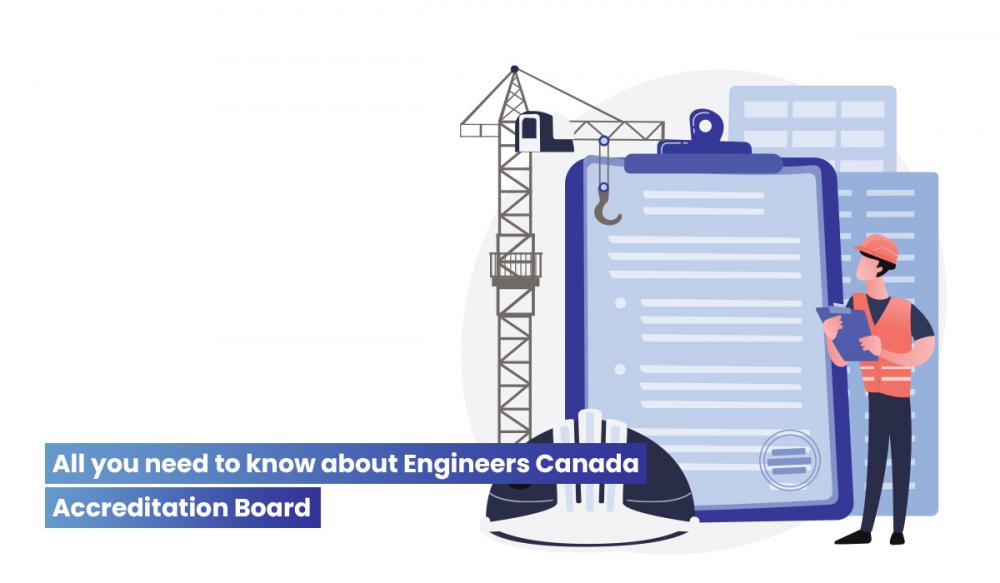
The Vision and Strategies of Engineers Canada (EC)
Engineers will be essential in determining the future of Canadian society as the nation's population expands, urbanizes, and becomes more interconnected. Excellence, innovation, and sustainability are the three crucial visions of Engineers Canada (EC) for the future of engineering.
EC is Canada's national organization that represents the engineering profession. We will discuss EC's goals and plans for engineering in Canada in this blog post, as well as the steps the organization is taking to advance the industry and prepare for the challenges of the twenty-first century.

Building a stronger engineering community in Malaysia: The mission of the Board of Engineers Malaysia
In Malaysia, the development of the nation's infrastructure and economy depends heavily on the engineering sector. The Board of Engineers Malaysia (BEM) was established to ensure the highest levels of engineering excellence and safety. The BEM is an organization that regulates the engineering industry in Malaysia with the goal of fostering the growth of a strong and active engineering community.
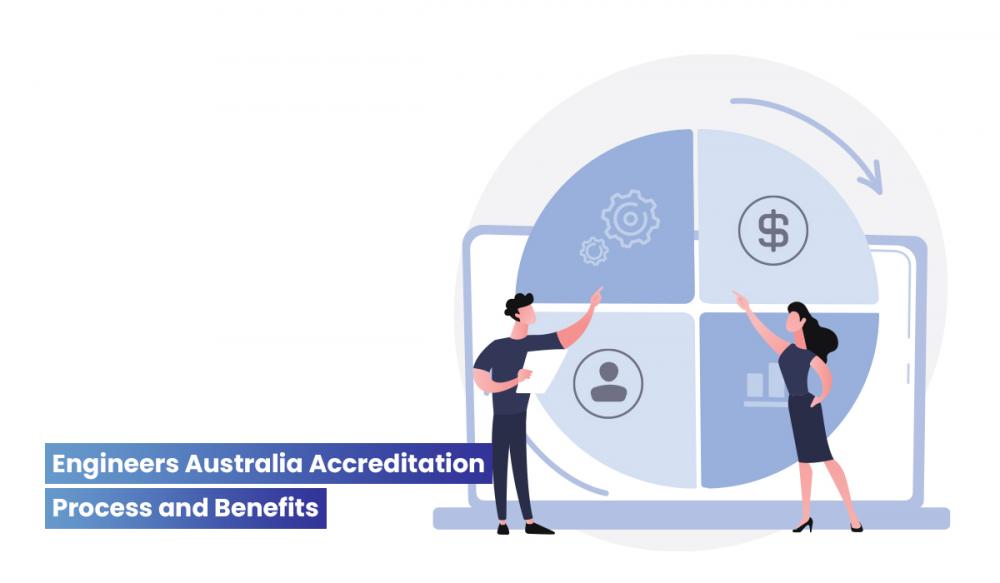
The Process and Benefits of Engineers Australia Accreditation for Engineering Programs
A quality education that equips Australian students with the challenges of the profession is crucial because engineering is a highly technical and complex field. This is where Engineers Australia accreditation comes in, as it guarantees students, employers, and other stakeholders that an engineering program complies with requirements and equips graduates for professional success.
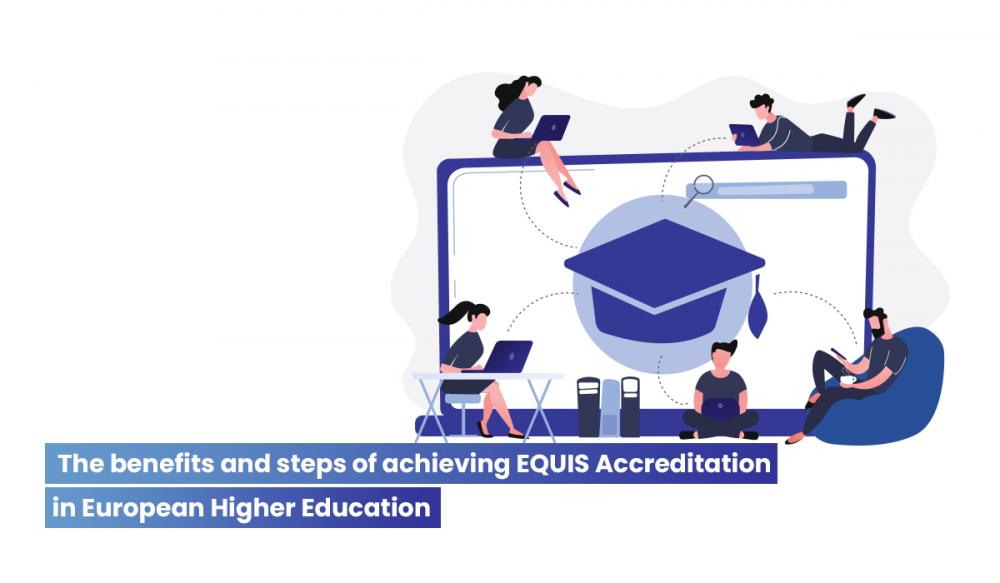
The benefits and process of EQUIS Accreditation for European Higher Education
The benefits and process of EQUIS Accreditation for European Higher EducationAs the world becomes more interconnected and competitive, European higher education institutions are seeking ways to distinguish themselves and enhance their global reputation. One way to achieve this is through accreditation by international organizations such as the European Quality Improvement System (EQUIS). EQUIS is a prestigious and rigorous accreditation system that assesses the quality of management education offered by higher education institutions.

Understanding the ACBSP Accreditation Process
Accreditation is an important process for educational institutions, particularly business schools. It provides a level of assurance to students, employers, and other stakeholders that the institution meets certain standards for quality and effectiveness. One of the major accreditation bodies for business schools in the United States is the ACBSP accreditation or the Accreditation Council for Business Schools and Programs.
In this blog post, we will explore the ACBSP accreditation process, including its benefits, standards and criteria, and steps involved.
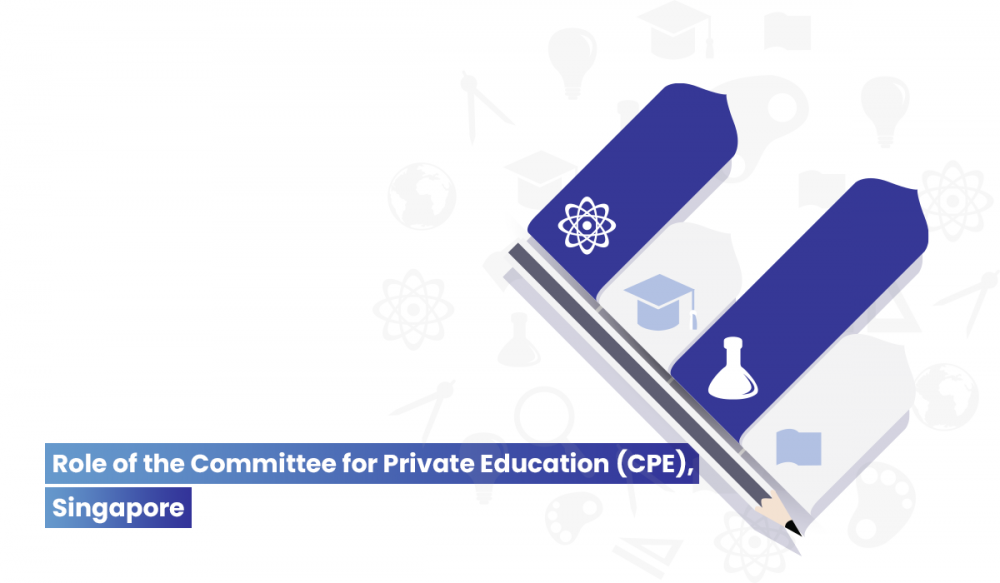
The role of CPE in protecting the rights and interests of international students studying in Singapore
International students are an integral part of Singapore's vibrant and diverse higher education landscape. They bring with them unique perspectives, experiences, and aspirations that enrich the academic and cultural environment of our institutions. However, studying in a foreign country can also pose challenges and risks, especially in relation to the quality and credibility of the education provided.
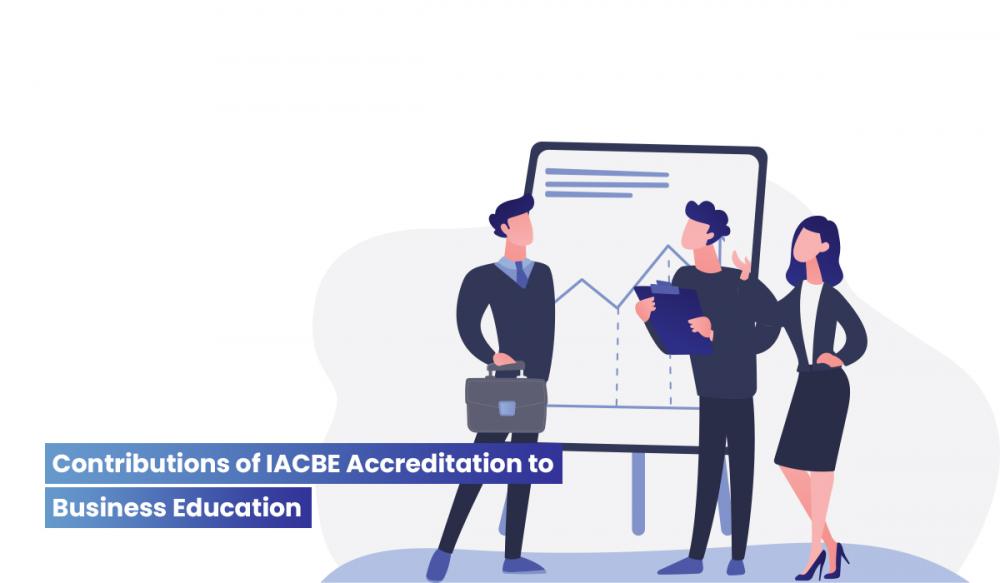
Raising the Standards of Business Education: The Contributions of the IACBE Accreditation
The International Accreditation Council for Business Education (IACBE) is, without a doubt, the specialized accrediting agency that focuses on business programs in colleges and universities worldwide. In today's rapidly evolving business world, it is essential to have a solid foundation of business knowledge and skills to succeed. This is where the role of IACBE institutions comes into play.
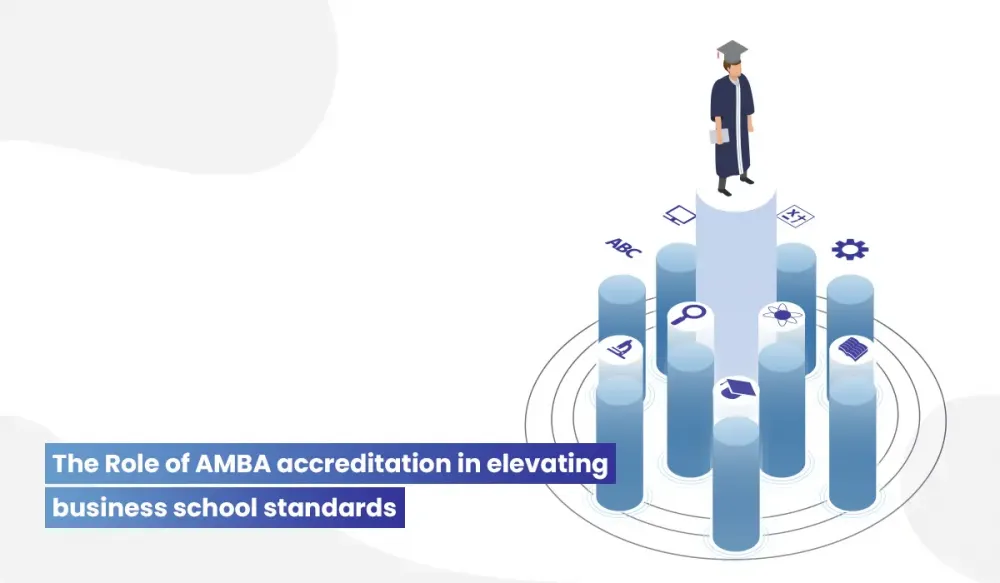
Elevating Business Education Standards: The Role of AMBA Accreditation
As the global business environment becomes more competitive and complex, the importance of high-quality business education cannot be overstated. Accreditation by reputable organizations like AMBA accreditation is an essential aspect of promoting the quality of business education and ensuring that business schools are meeting the needs of their students and stakeholders.
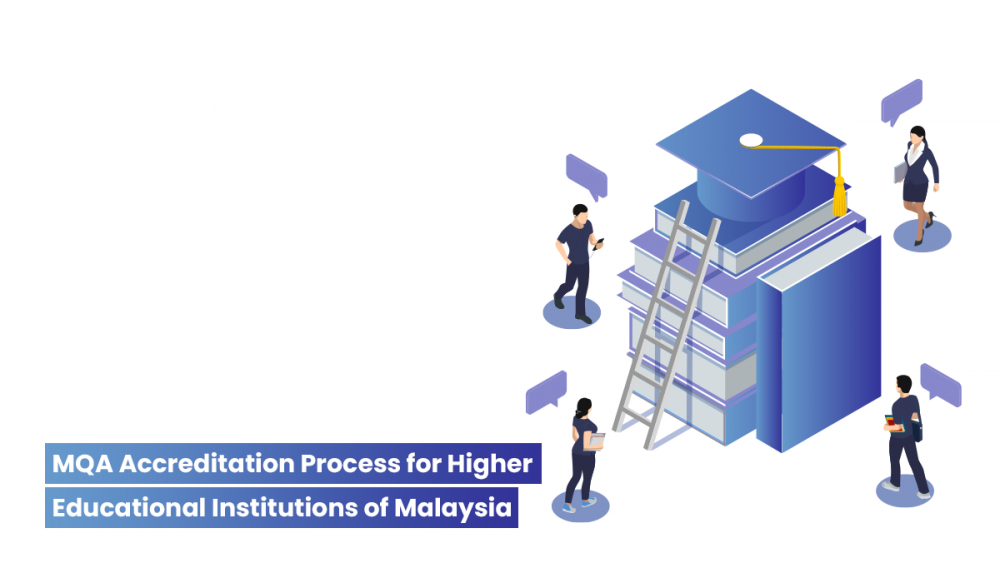
A Guide to the MQA Accreditation Process for Higher Educational Institutions
MQA Malaysia oversees the quality assurance and accreditations of HEIs, it is an agency that has established partnerships with over 100 institutions worldwide, it works closely with the Ministry of Education and other stakeholders in Malaysia, and the list is endless.
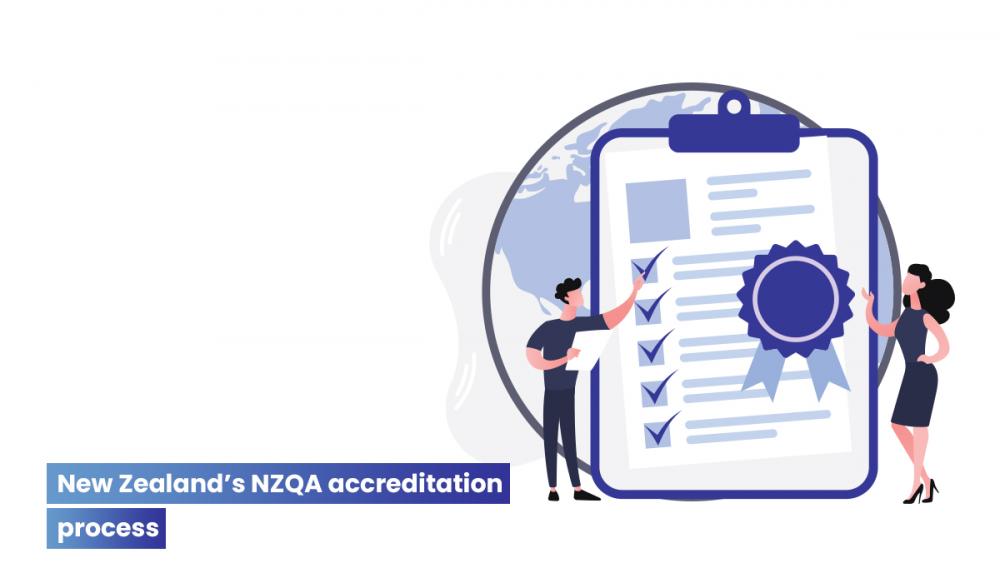
The process of obtaining NZQA accreditation for quality assurance
New Zealand is known for its exceptional education system and highly qualified professionals in various fields. As an international education provider, obtaining accreditation from the New Zealand Qualifications Authority (NZQA) is crucial to ensure the quality and credibility of your institution's education programs.
The process of obtaining NZQA accreditation can seem daunting at first, but it is essential for any education provider seeking to attract international students and establish a reputable brand.
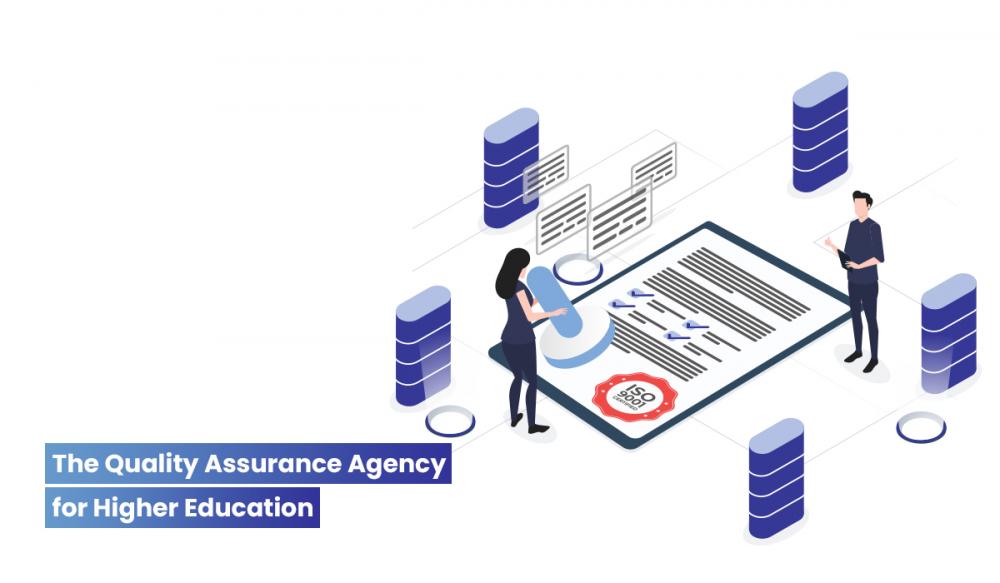
The QAA Approach to Higher Education Quality Assurance
Higher education is a critical component of any society's development, serving as a platform for the acquisition of knowledge, skills, and competencies necessary for personal growth, innovation, and economic growth. As such, ensuring the quality of education provided by higher education institutions is of utmost importance. This is where quality assurance by the quality assurance agency comes in.
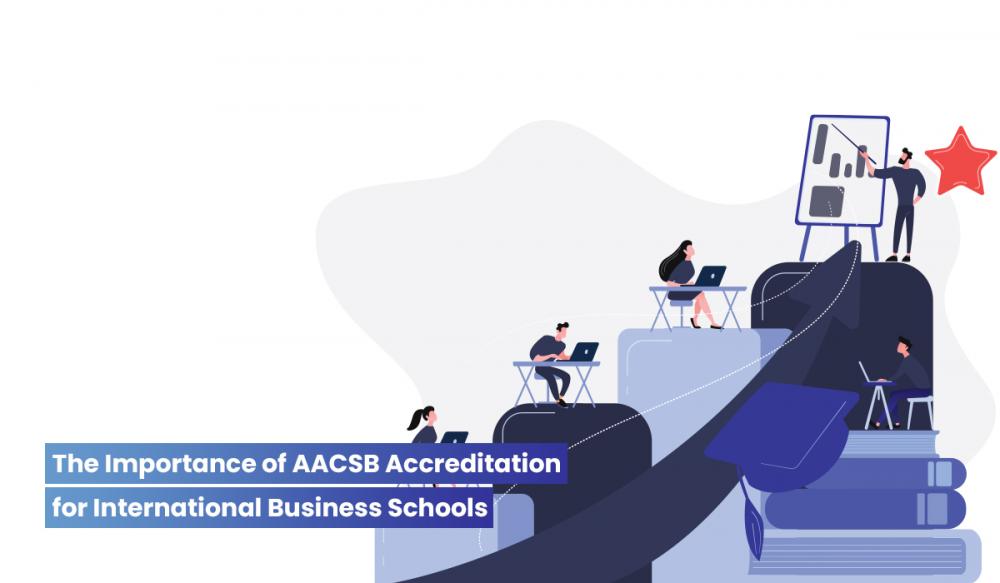
The Importance of AACSB Accreditation for International Business Schools
Welcome to our blog on AACSB Accreditation for International Business Schools. In today's globalized economy, business schools need to prepare students for the challenges and opportunities of an interconnected world. AACSB Accreditation is a mark of excellence that signals to students, faculty, and employers that a business school meets rigorous standards of quality and relevance.

The Higher Education Council (HEC) in Bahrain: Ensuring Quality and Excellence in Higher Ed Institutions
It is right now the era of quality, credibility, and reputation in the Higher education sector and that’s exactly why HEIs in Bahrain are rushing towards gaining accreditation like the Higher Education Council (HEC). This hype is due to several reasons such as meeting established standards and offering high-quality academic programs, enhancing reputation worldwide and attracting more students, increasing credibility, funding opportunities, and inviting global recognition.
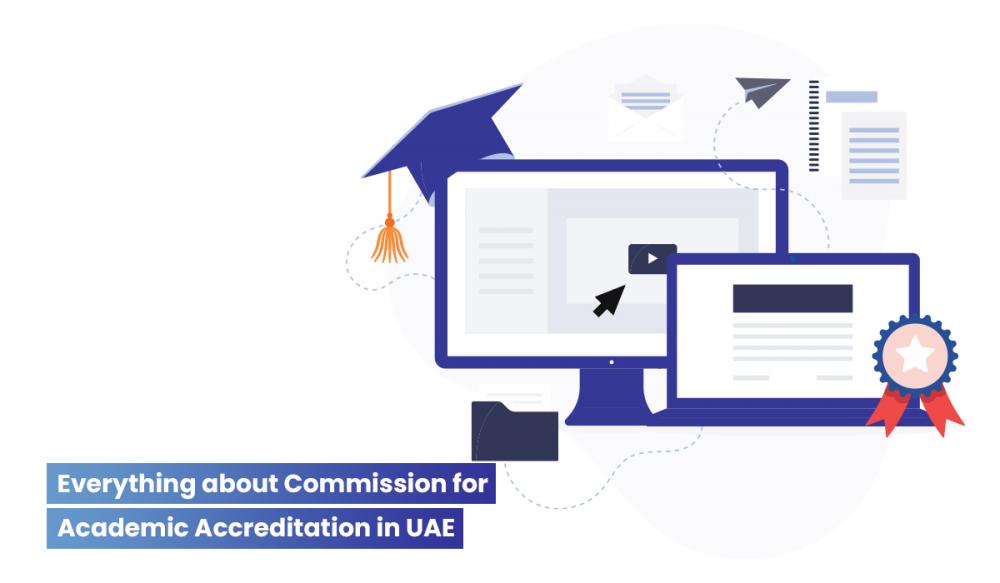
Understanding the purpose and role of the CAA UAE in higher education
To colleges and universities that struggle to prove their learning and teaching caliber in the UAE region and to attract more students, the CAA or Commission for Academic Accreditation comes as bliss. This accreditation body evaluates and accredits colleges, universities, and academic programs to ensure they meet certain standards of quality and academic rigor. There are various criteria and parameters that the CAA takes into account to assess institutions. Let’s learn everything in detail about CAA in the UAE Ministry of education.
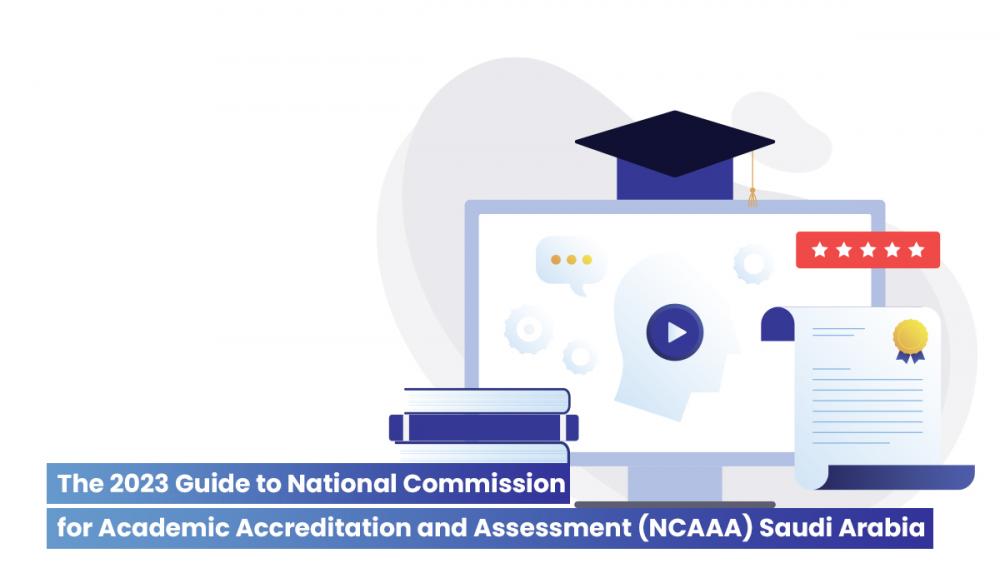
A Guide to the Accreditation Process with the National Commission for Academic Accreditation and Assessment (NCAAA)
Overview of NCAAA Saudi Arabia
The 2030 vision for Saudi Arabia is causing a rapid change in the country's higher education standards. There is a greater emphasis on value education everywhere. The Ministry of Education (MOE) advises universities to apply for institutional and program accreditation through the National Commission for Academic Accreditation and Assessment (NCAAA), an independent organization that answers directly to the Council of Higher Education.
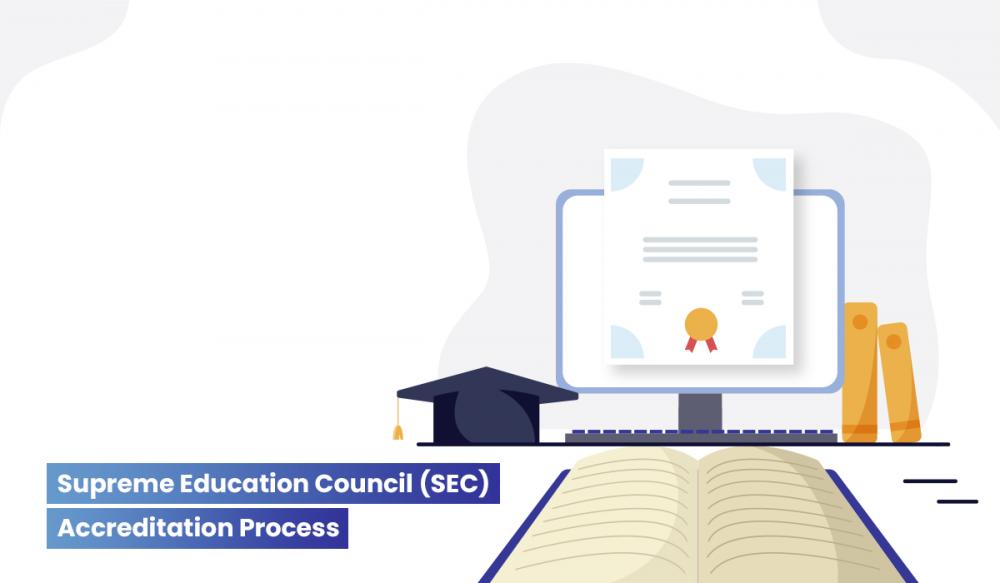
An Overview of the Accreditation Process with the Supreme Education Council (SEC) Qatar
What everyone knows of Qatar’s Supreme Education Council (SEC) is that it is a governing body that is responsible for overseeing and directing the higher education sector, establishing policies, setting standards, and allocating resources to ensure that education in the country is of high quality and accessible to all in the country.

9 pointers that will help you secure A+ and A++ grading in your NAAC Accreditation
Achieving excellence in higher education is a shared aspiration for educational institutions worldwide. One prestigious benchmark that validates this pursuit is the National Assessment and Accreditation Council (NAAC) accreditation. NAAC is a nodal agency tasked with evaluating and assessing the quality of higher education institutions in India.

ABET Accreditation for higher education - everything you need to know
If you have been an institute’s admin head, then ABET Accreditation should be a familiar term. The process takes around 8 full months to get completed. It is one of the reliable ways to offer quality education to students. And there’s more to learn about it. Let’s deal with them in detail and find answers for
- What is the ABET accreditation process?
- How can it be beneficial for your institution?
- What is ABET assessment?
- What are the accreditation criteria?
- How does Creatrix Accreditation platform help in ABET accreditation?
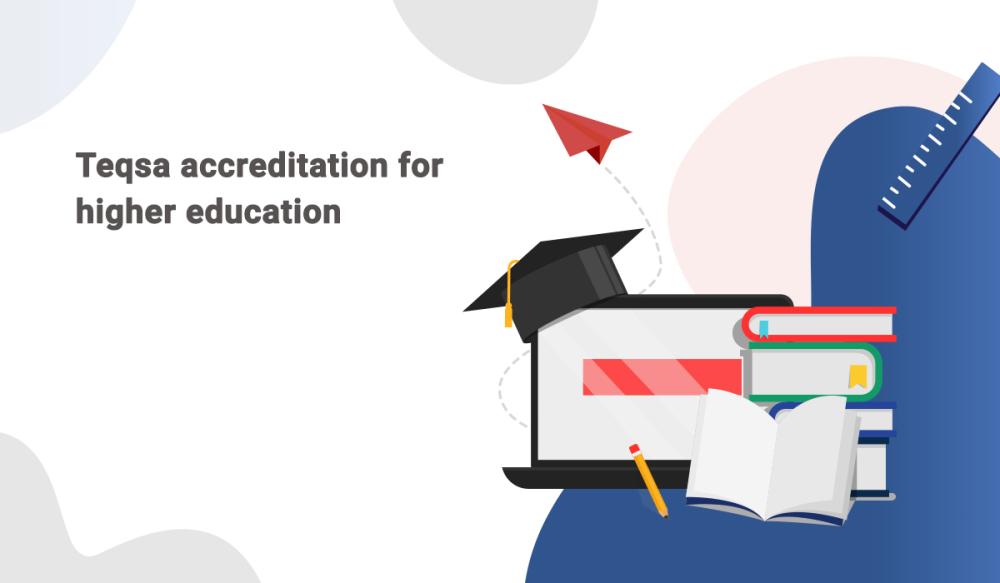
TEQSA Accreditation for higher education
Teqsa accreditation for higher education was formed to ensure quality in Australian higher education. It traced through the problems on why some education institutions failed to achieve student learning outcomes with the help of the country’s governing bodies. The blog details what Teqsa is all about in a nutshell.
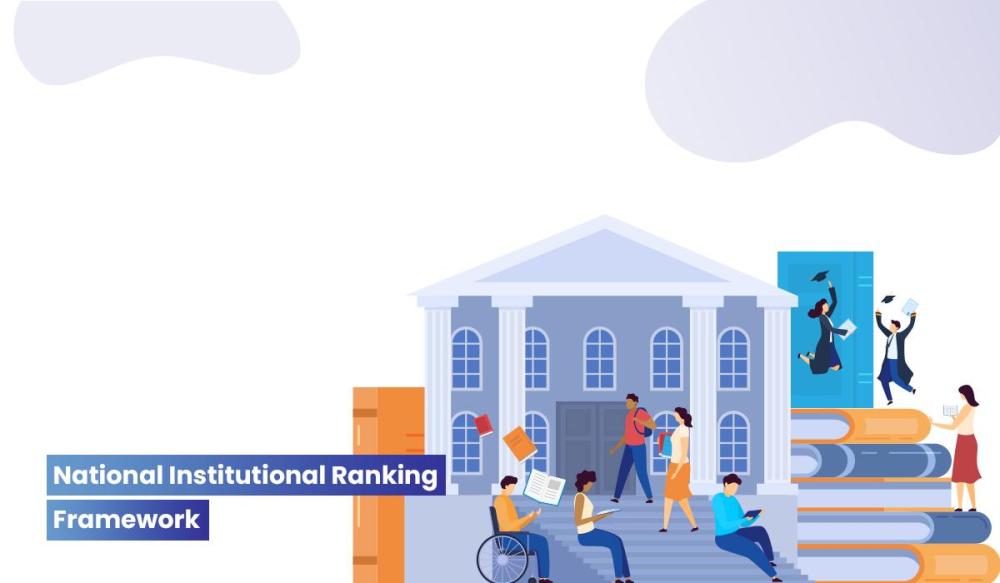
An ultimate guide to improve NIRF ranking for universities and colleges
Be it any kind of ranking, we always seek the top 3, top 10, top 100, and so on. Such is the power of listing. And when it comes to institutions, especially those like NIRF ranking, it’s definitely in the news flash or on the cover page of numerous business magazines, resulting in a huge sellout, the main buyers being the students and parents who grab copies to know the details of the top-ranking institutes. The ranking is crucial to higher education institutions as it determines a students’ future and career opportunities.
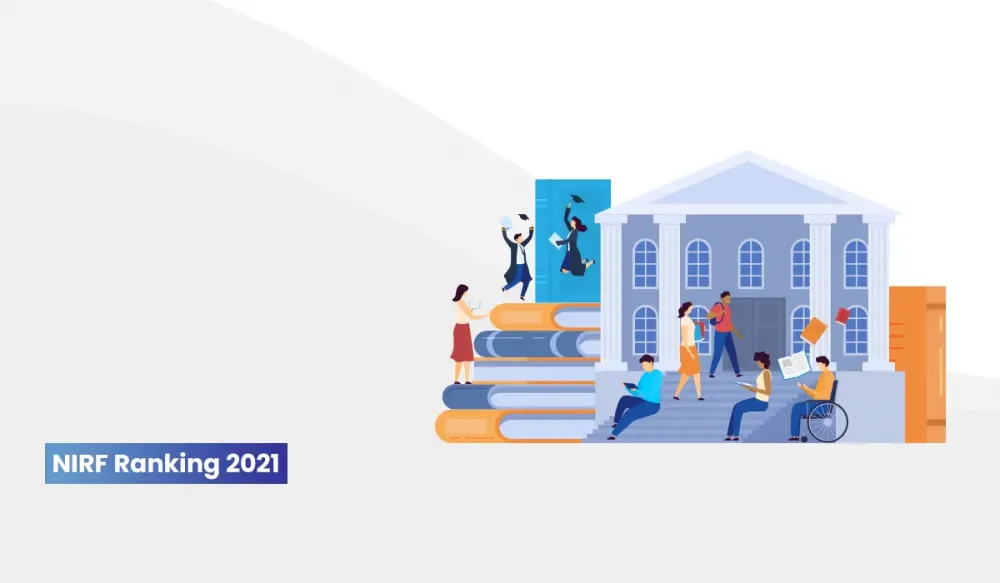
NIRF Ranking 2021: Key Parameters Explained for Universities and Colleges
Introduction to NIRF ranking 2021
A quick question for you before we get into NIRF ranking 2021.
What first comes to your mind while choosing a product over the others in the market? It’s obviously the Brand or the Brand Value that lets us decide on a product. Better the value, better are the chances to actions, behaviors, and finally the decision-making process of making a purchase. The concept applies to everything—right from buying cosmetics, clothing, gadgets to even choosing college and career pathways.
Meeting Management Software for higher education
Student CRM
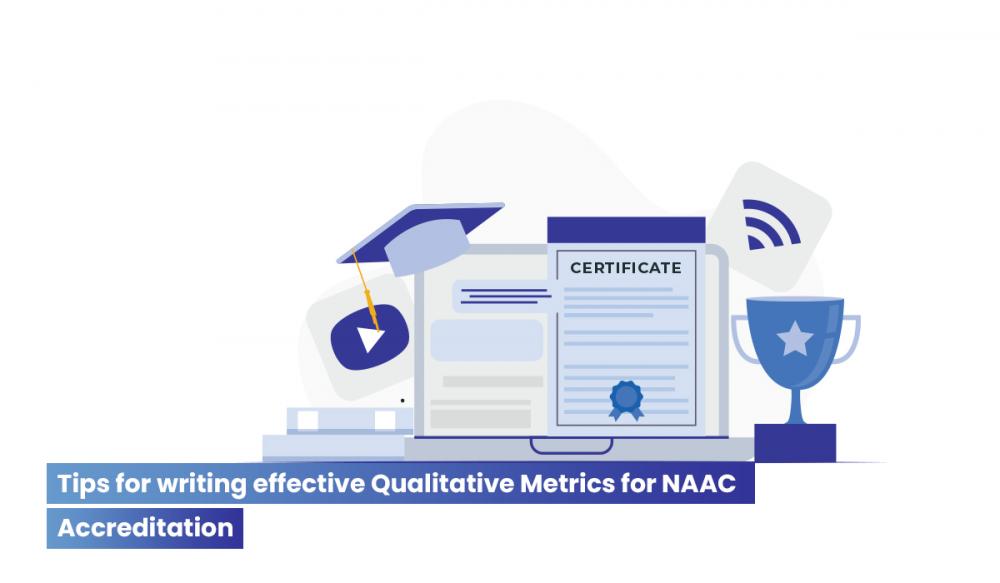
Preparing Qualitative Metrics for NAAC Accreditation? These 12 tips could help you
Often, the most crucial, yet complicated task in the NAAC Accreditation process is preparing Qualitative Metrics for NAAC Accreditation. Answering those metrics could be quite challenging. What you communicate in there could bring a frown, nod, surprise, smile, or a grin into the peer team visitor’s face. Are you ready for it? We know, it's a team task.
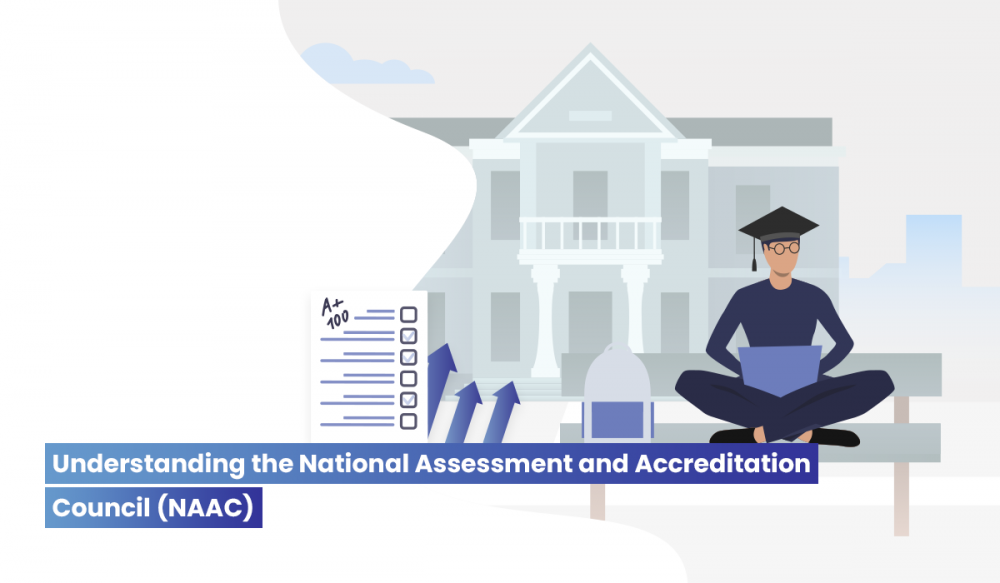
NAAC Accreditation for Higher Education: The Definitive Guide
History | Benefits | Eligibility | Criteria | IQAC
Accreditation being a quality, any university or educational institution when it is recognized to possess a certain set of quality standards, we say it is Accredited. Talk about any authorization, NAAC Accreditation is sure to top the list.
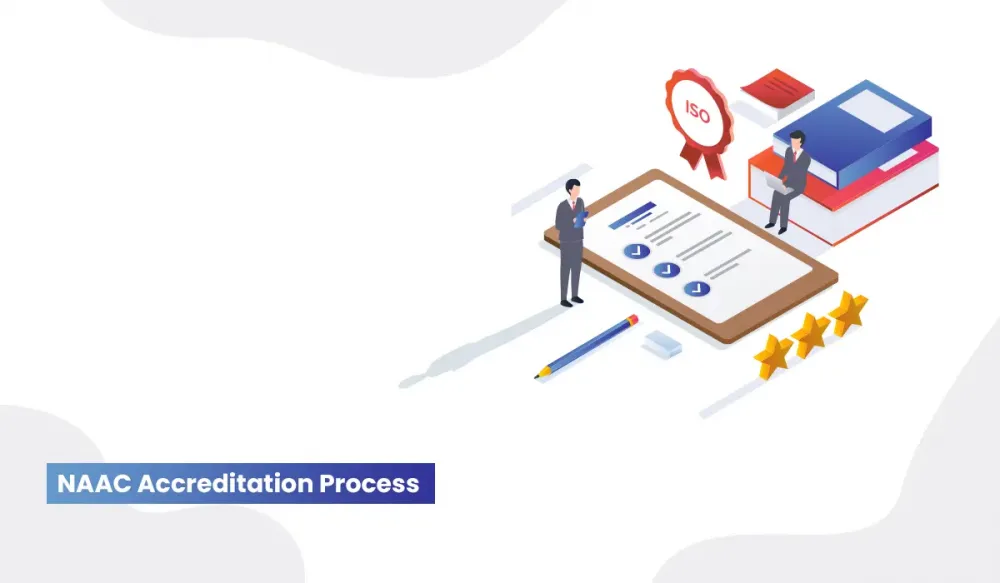
The NAAC Accreditation Process and Self-study Report (SSR)
Tune In To Our Audio Blog

Stay ahead of the curve - NBA accreditation criteria
You must have read enough about NBA accreditation from our previous blogs. We thought we would now move further to tipping on a few facets of the NBA accreditation criteria. Before that let us stress what we have already done.

The A - Z benefits of NBA Accreditation
The NBA badge: What's keeping you away?
Wondering about stringent rules, the need for designated research faculty, and the hefty accreditation fees associated with NA Accreditation? Feeling overwhelmed by Vision, Mission, and Program Educational Objectives (PEOs)? Or perhaps the inflexible Self-Assessment Report (SAR) is causing concern? If any of these challenges sound familiar, you're not alone. In today's landscape, the absence of NBA Accreditation for your institutional programs can potentially impact both your institution and its students negatively.

Understanding the National Board of Accreditation (NBA Accreditation)
There is a furor everywhere about the National Board of Accreditation being made a mandate by 2022. Running a technical institute without the NBA needs a gear-up. Gaining this hallmark quality needs a certain understanding.
You will find answers to most of your National Board of Accreditation-related uncertainties in this blog. Besides you would also know the What, When, Why, and How of it. Read on.
Accreditation Management Software
Class Scheduling Software
Student Fee Management System
Online Student Course Evaluation Software
Curriculum Management System
Alumni Management Software
Student Attendance Management System
Outcome Based Education Software
Competency Based Education Solution

How technology-readiness will allow institutions to easily go for ABET Accreditation
In most states of the US, the completion of an ABET accredited four-year Sc.B. degree program is among the first requirements to qualify for admission to examination at the first level of professional registration as an engineer. ABET accreditation system is a non-governmental, peer review process that ensures a quality educational experience for educational institutions which volunteer to periodically undergo this review process.

How our ABET Accreditation Management System can simplify assessment & continually improve your engineering programs
Why ABET Accreditation matters to institutions?
The ABET (Accreditation Board for Engineering and Technology Inc) is a highly reputed not-for-profit, non-governmental accrediting agency in applied science, computing, engineering and engineering technology. The ABET accreditation has been received by over 600 institutions in the US alone and by institutions in more than 30 countries making it a reputed program.
ABET Accreditation Process

How key accreditation issues can impact quality assurance and recognition of colleges and universities
Accreditation to courses and programs in colleges and universities has fulfilled the academic standards to produce graduates ready to enter the critical fields of science, computing, engineering, technology, and Medicine.
Academic accreditation is the trusted standard
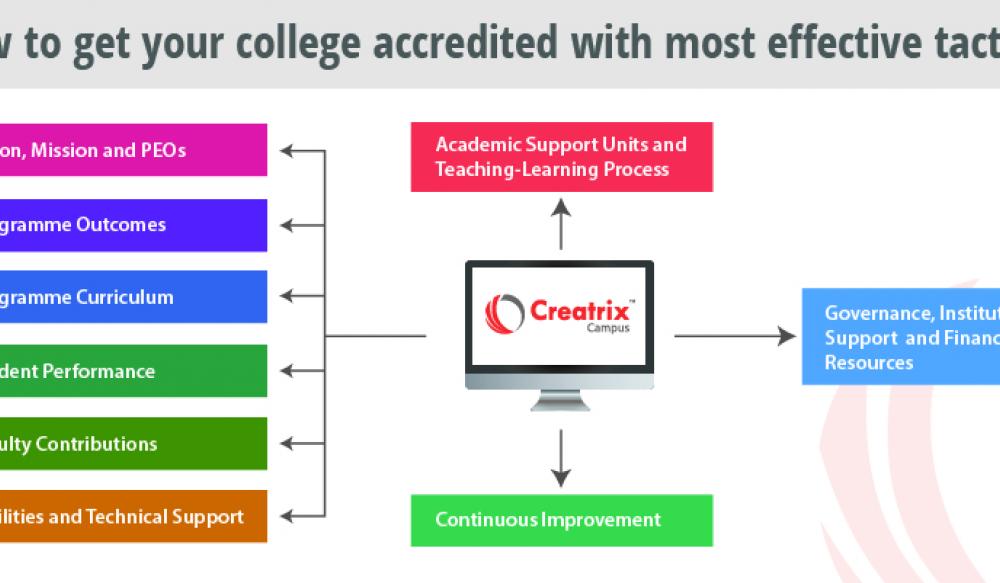
How to get your college accredited with most effective tactics?
Academic accreditation is a formal recognition of an educational program or Institution in accordance with the standards of quality set by the accreditation agency against well-defined criteria. Collegiate accreditation is granted to particular higher educational Institutions on the basis of an impartial assessment of the attainment of specific requirements in terms of its performance, related to the academic processes and outcomes, covering the entire academics, administration, and services.

Twelve accreditation problems of institutions outcome-based education software can solve
Accreditation is about assuring threshold quality as well as assuring quality improvement in higher education institutions and programs. Colleges, universities and higher education institutes should ensure academic quality. The goal of accreditation is to ensure that education provided by institutions of higher education meet acceptable levels of quality.

5 ways to help faculty effectively manage teaching loads & schedules
One of the greatest problems for faculty members is to avoid high-level stress, fatigue, and burnout due to excess teaching loads in colleges and universities. Often in times of increased pressure, instructors may be firefighting to manage class schedules and find time for research, mentoring and other teaching events.
